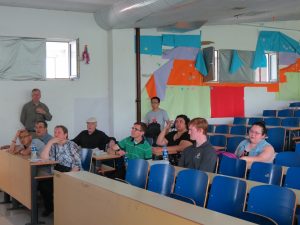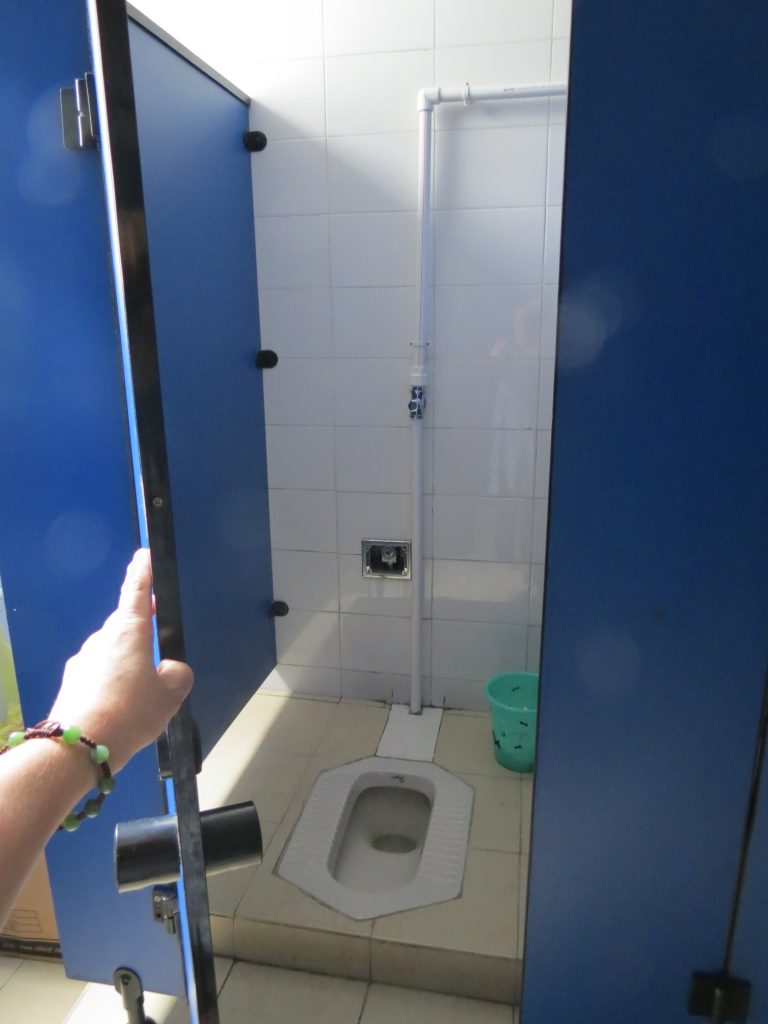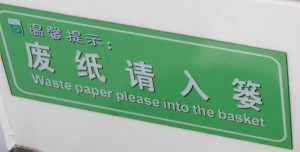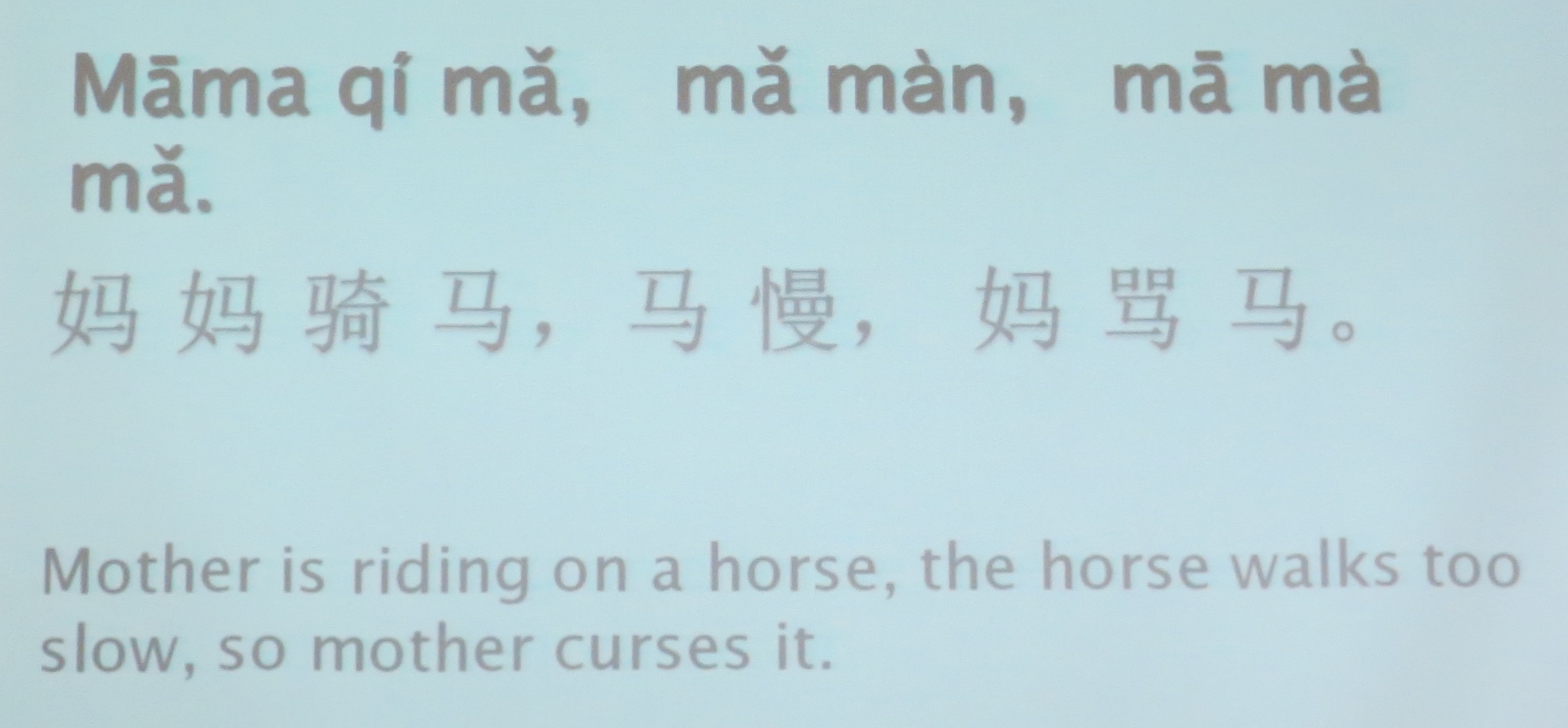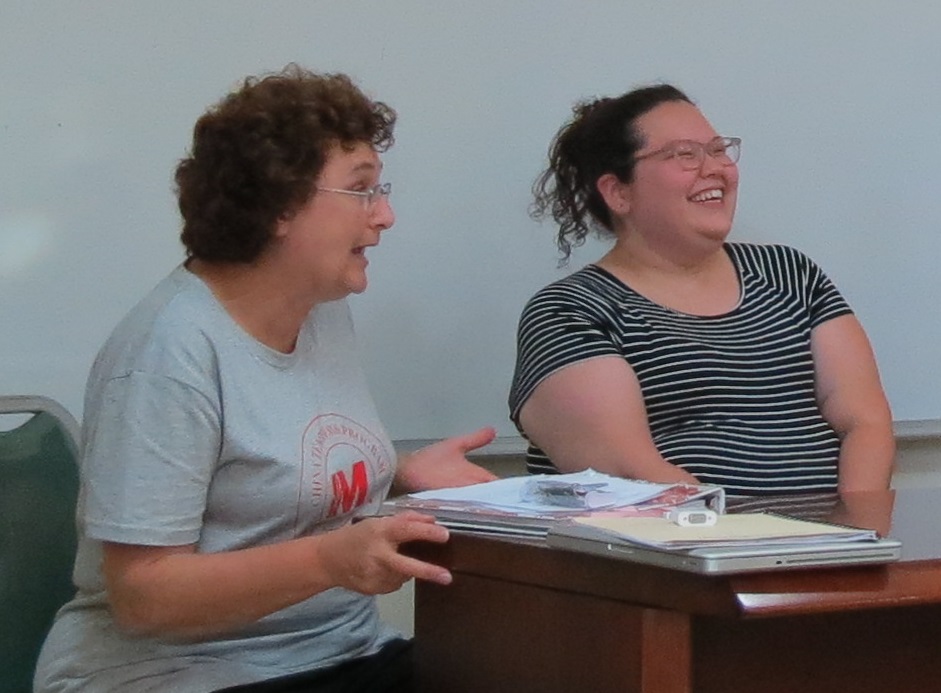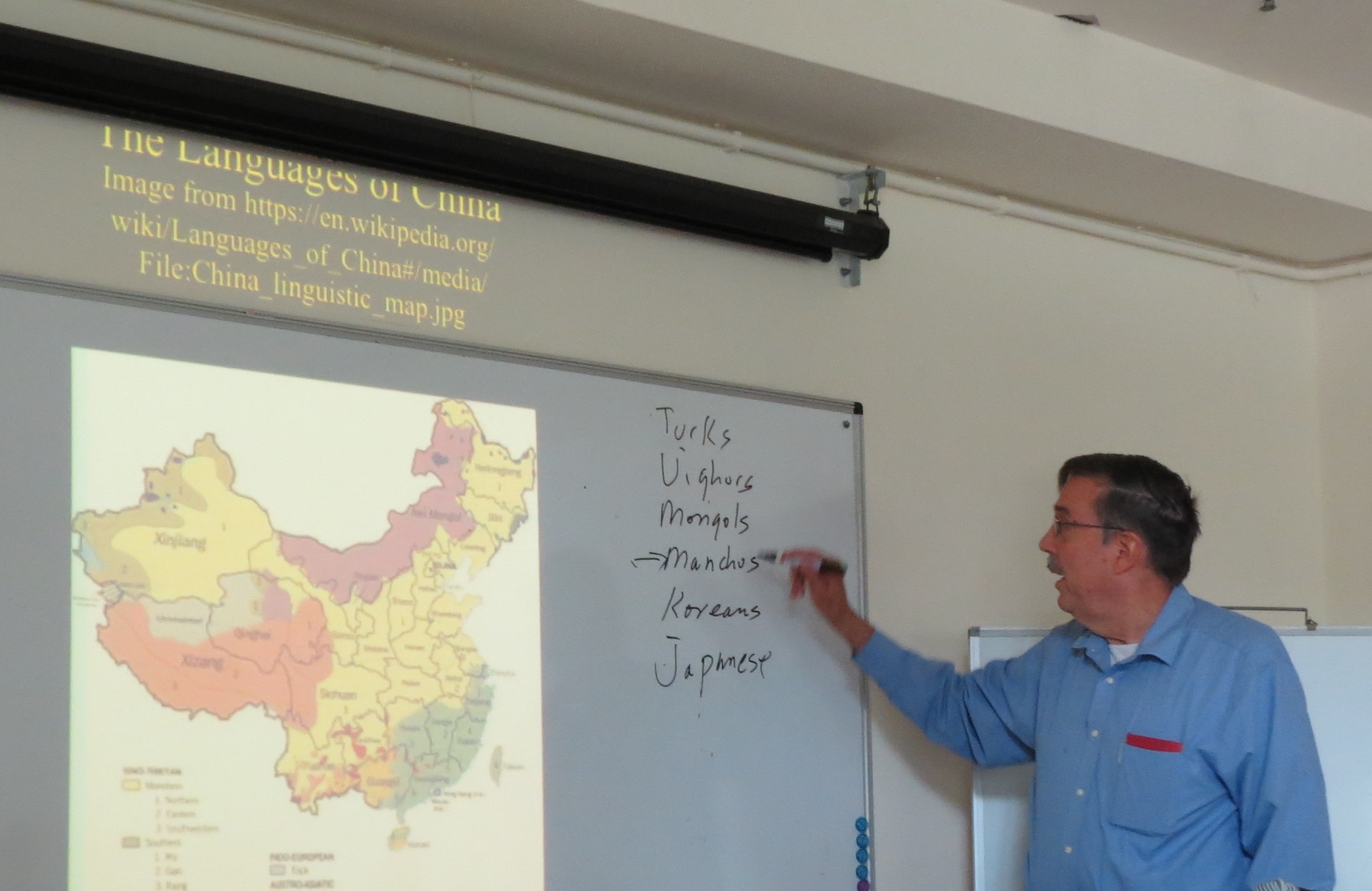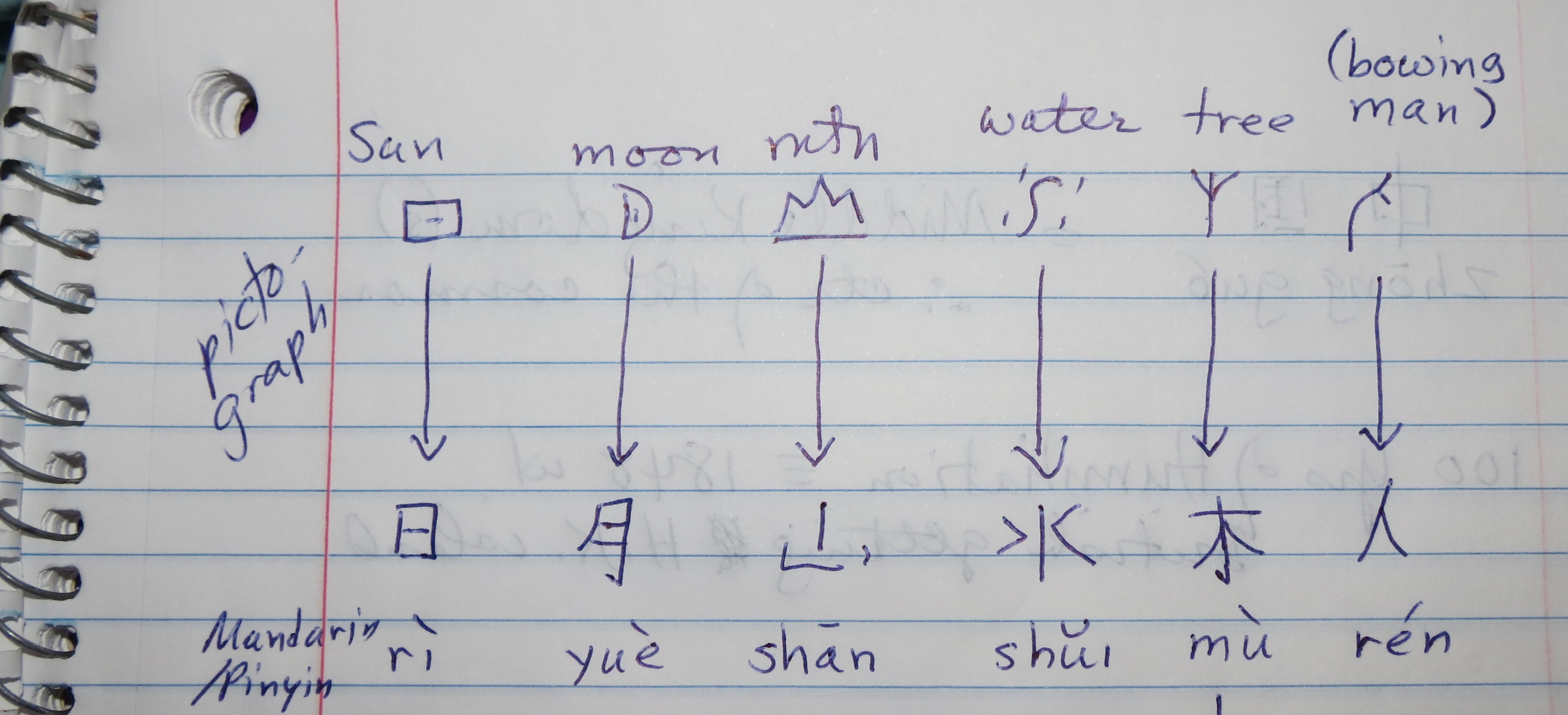The whole gang assembled this morning at 9:00, booklets containing all the China Daily articles were distributed…and…off we went!

My first group is Class 5, which consists of 13 young ladies and one young man, all of whom are studying nursing. Three are from the area around Jilin; one is from the mainland in the southeast, near Taiwan, and most of the others are from provinces south and central relative to Beijing. Since class membership is assigned randomly by the university, the students don’t necessarily know each other — and I have no way of knowing their level of English facility.
The first hour, as planned, Fr. B presented his article, “Racism Comes out in the Wash” (see http://www.chinadaily.com.cn/life/2016-06/06/content_25617356.htm). He began with the vocabulary, which is or isn’t the best way to start, depending on your article and the vocabulary itself. Then he read through it, explaining a bit along the way. At 9:45 the Class Leaders escorted us to our rooms and we got started.
My plan:
10:00 to 10:30 Introduction, Dictation,
10:30 to12:00 Reading Aloud, Vocabulary Review, Discussion
2:00 a speaking game based on Twenty Questions;
3:00 to be determined
Reality:
10:00 to 12:00 Introduction, Dictation, Reading Aloud, Vocabulary Review
2:00 to 2:30 Reading Aloud, Vocabulary Review
2:30 to 3:00 Pronunciation Drill
3:00 to 3:45 Speaking Exercise using new vocabulary
I introduced myself as I did last year: greet them in German, French, Spanish, and Korean before reverting to English. Of course, they were surprised and interested. I gave them my Chinese name, which seemed to please them very much. Then they introduced themselves: name, hometown province, major in school, English name. This group all have English names: the boy is Mark, there is Judy, Jennifer, Jane, two Alices, Mary, Maria, Betty and I don’t recall the rest. We slogged through the article, each student reading six or eight lines of text aloud and stopping to explain vocabulary and for me to paraphrase the meaning of the text. It is hard work, because in a country where you can easily be xenophobic and almost as easily have ethnic prejudices, the idea of racism seems to be not only a foreign concept but a completely natural one. I described how American society works (in the main!) with colorblindness a goal. They did not seem to appreciate why it would be desirable.
As students read aloud I listen for patterns of mispronunciation. Several cannot distinguish V from F, sometimes V from W. As we expect, the short I in “it” is generally pronounced like the long E in “eat”. No big problems with R and L, nor with TH and “th” (voiced and unvoiced, as in “the” and “thin”). There is a tendency among Manadarin speakers to drop final consonants (e.g., “I will get my ha” and not “haT”); this problem is rare in this group, but there are two students who over-pronounce the final sounds, creating an extra syllable: I read-a the book-a. This is especially noticeable in words with with a silent E at the end. Slope becomes slo-puh, lake becomes lay-kuh.
After lunch it’s essential to change the pace, so we persevered through the last four paragraphs and then I distributed one of my homemade pronunciation drill sheets. There are about 20 groups of competing sounds and words that may be mistaken for another:
while–whale–wile, wear–ware–where
slip–slop–slap–slope–sloop–scoop–scope
and so forth. This is fun to do, and a challenge to me as well, since I introduce each group by saying them as quickly as possible.
For the last period, I paired the students up using Uno cards (find the person holding the card that matches yours, then work together. I gave each pair an index card on which I had written three vocabulary words from the lesson, plus a random noun such as potato, policeman, shoe. Their task was to create a few sentences forming a little story using all four words. Since it was Day 1 I permitted discussion in Chinese, and let them write their story down in English so they could read it if speaking was hard.
These students were challenged! One or two are very good speakers, another couple are fluent but hard to understand, several are very halting, and one or two are impossible to understand. However, they did all right using some very tough vocabulary and of seven pairs of partners, three came up with quite imaginative little stories. The best was the girls who were given Coca Cola for their noun. They told us that Coca Cola is magic and if you drink it your accent will disappear.
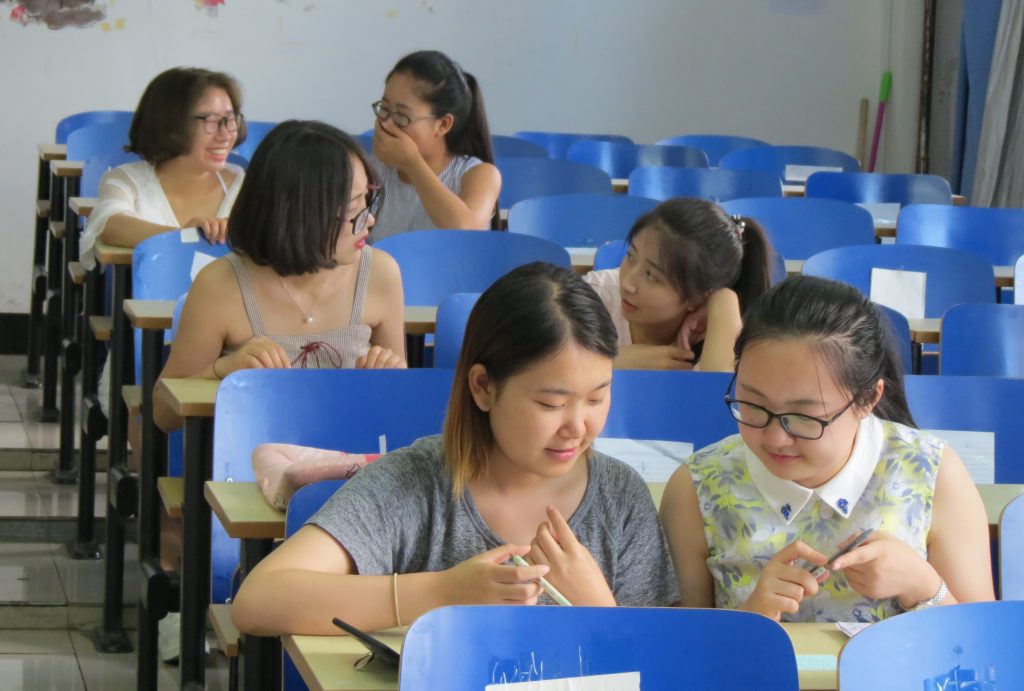
Prayers at 4:30, some note-comparing with the other teachers, a little blogging…and now back to the hotel to read tomorrow’s article and review tomorrow’s vocabulary.
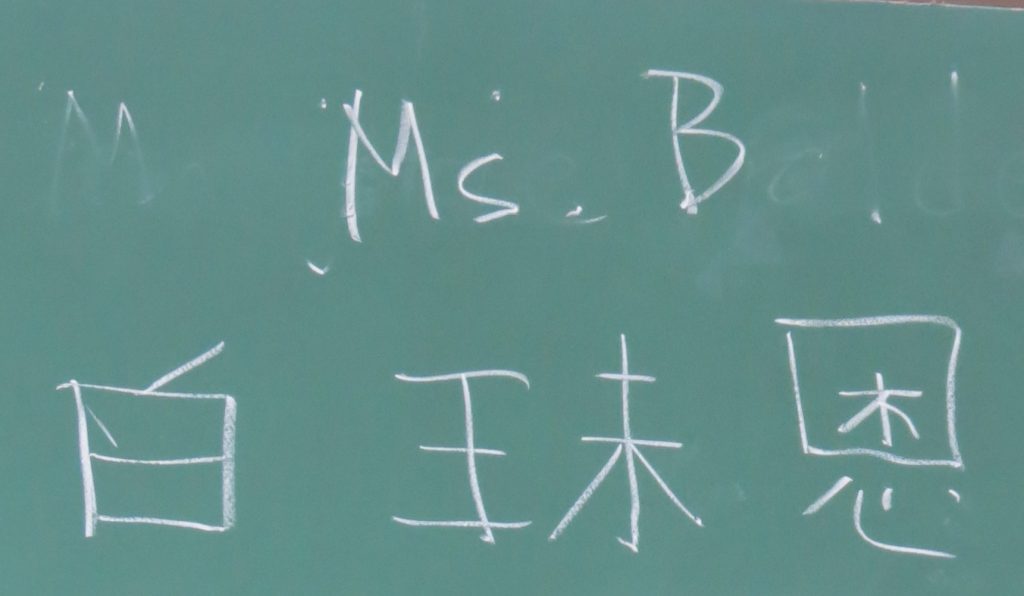
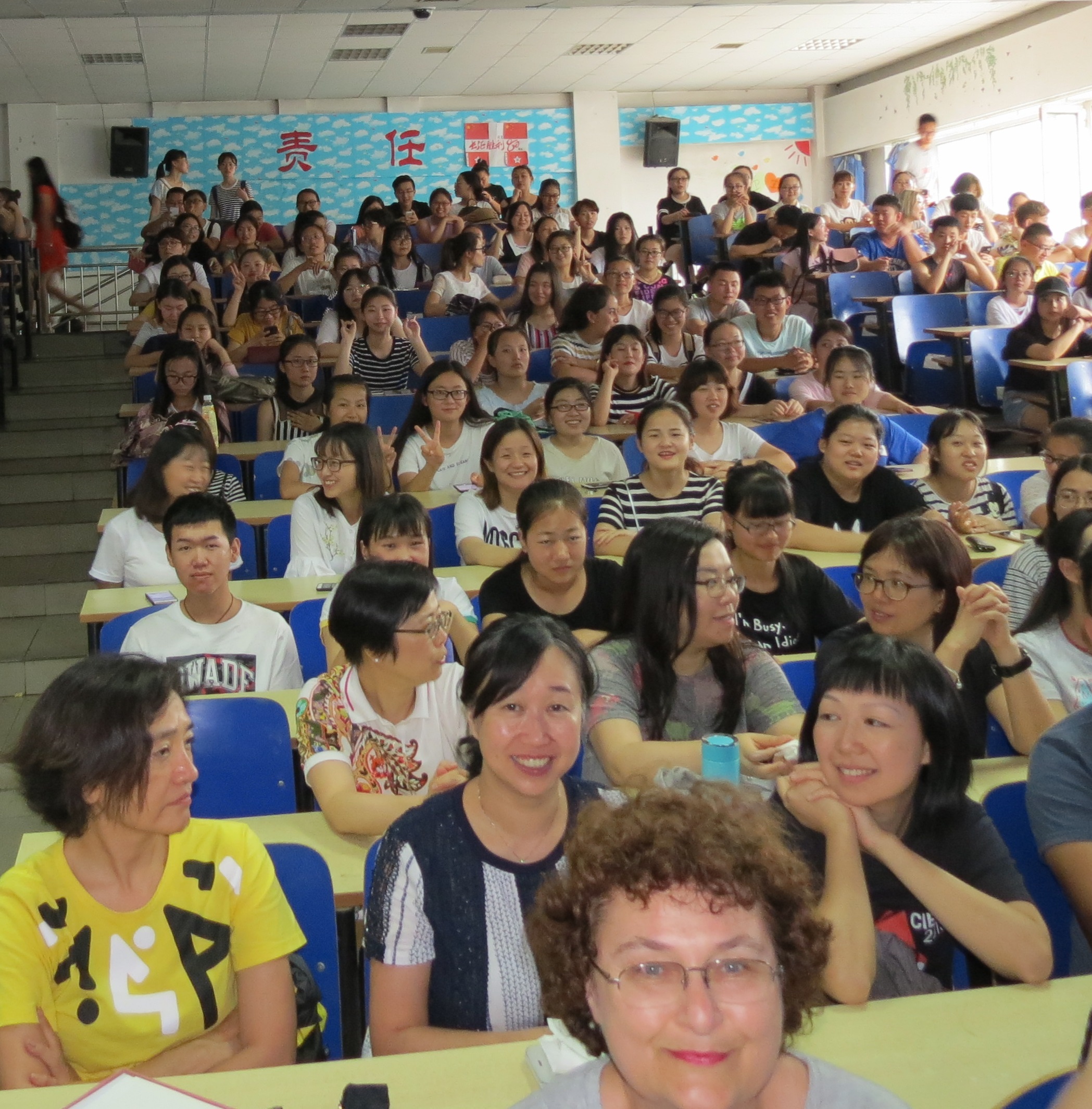
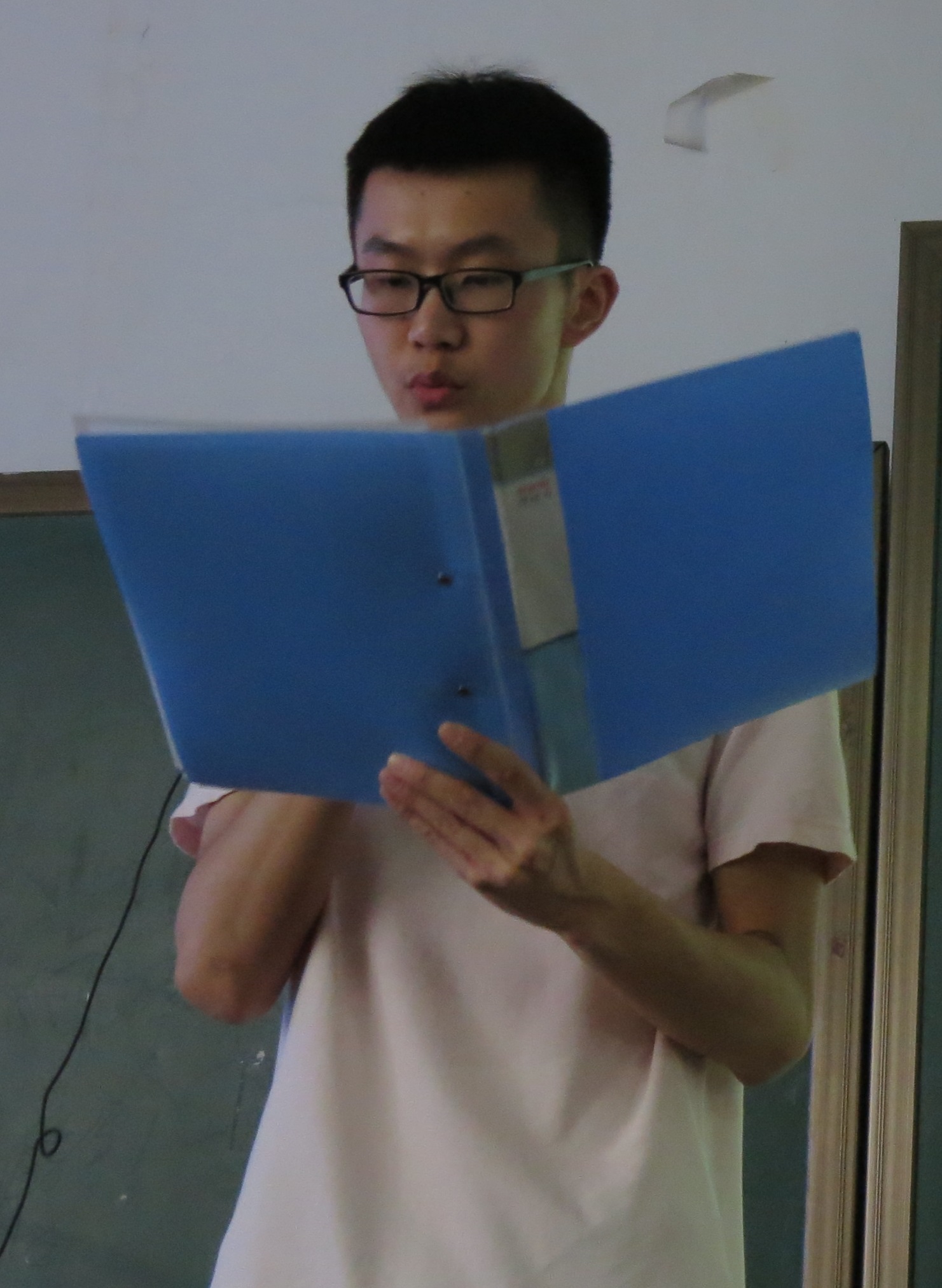
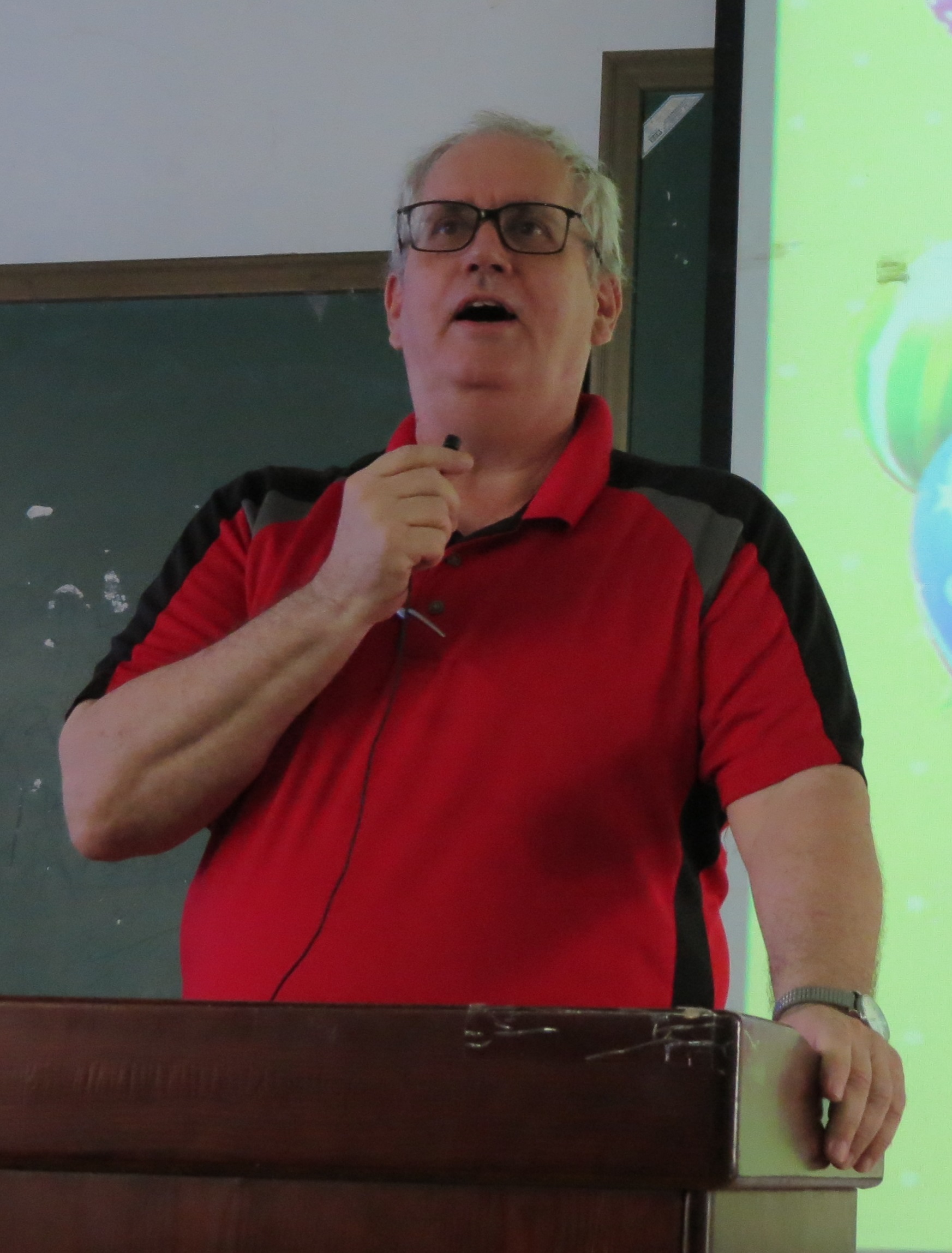
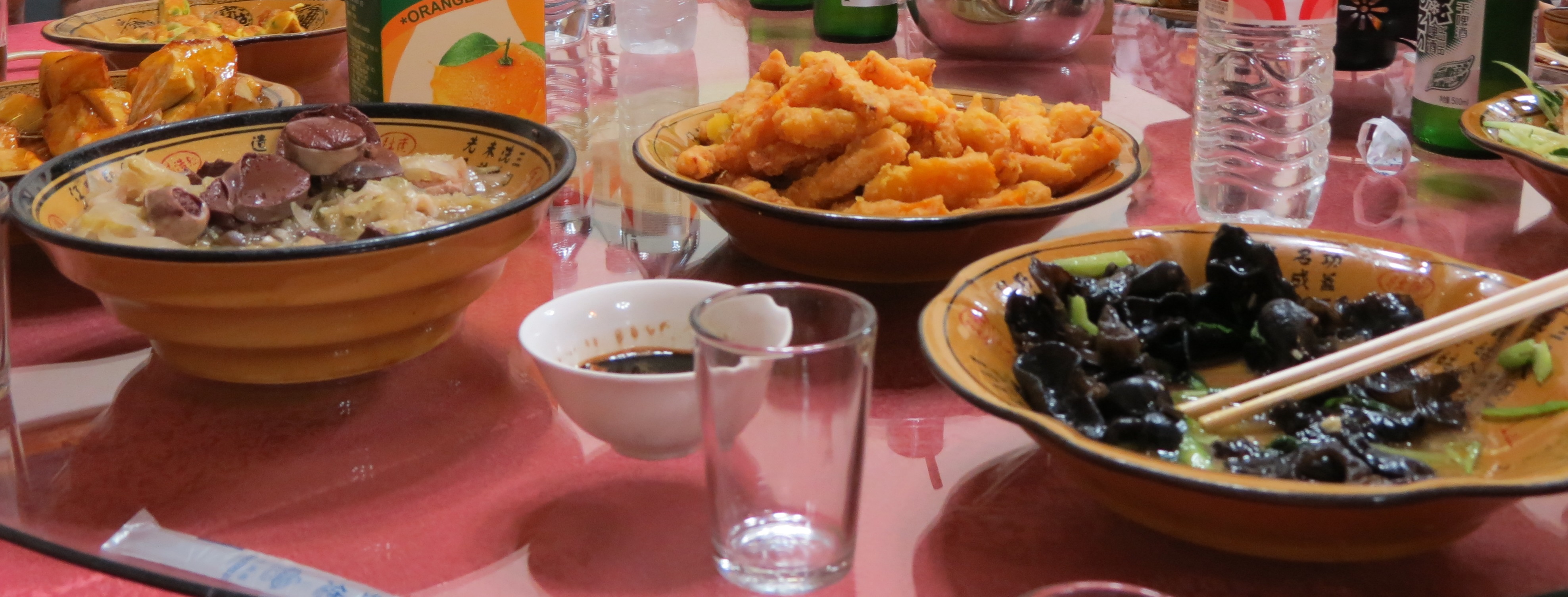 Wonderful Chinese Dinner
Wonderful Chinese Dinner Today the group got its first look at the facilities we’ll be using.
Today the group got its first look at the facilities we’ll be using. Of course, we had to pose for pictures in front of the library/administration building.
Of course, we had to pose for pictures in front of the library/administration building.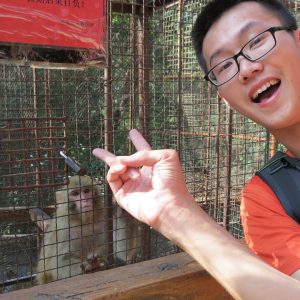 This means that he’s in charge of supervising about 15 subordinate Class Leaders and ultimately responsible for the behavior of all 180 students. He is staying at the hotel with us and is additionally tasked with ensuring that none of us gets lost. I’m very glad he’s been given this position. He’s an avid student and quite a lot of fun.
This means that he’s in charge of supervising about 15 subordinate Class Leaders and ultimately responsible for the behavior of all 180 students. He is staying at the hotel with us and is additionally tasked with ensuring that none of us gets lost. I’m very glad he’s been given this position. He’s an avid student and quite a lot of fun.
